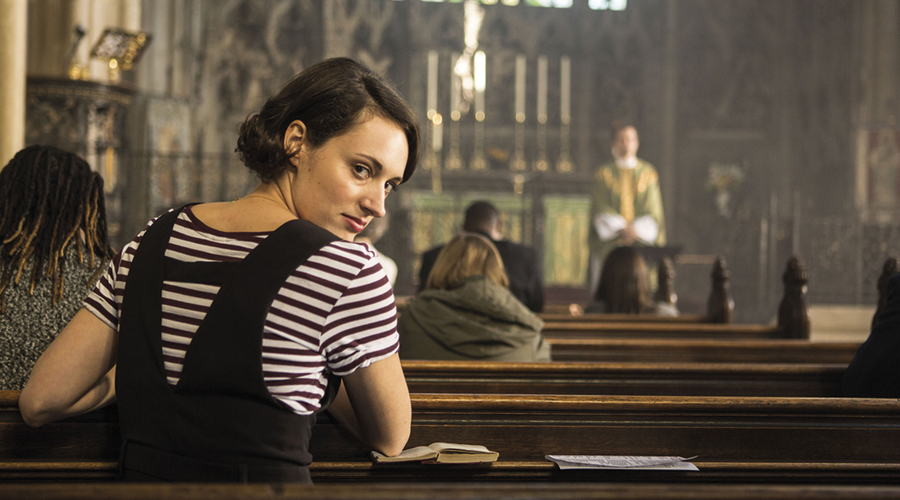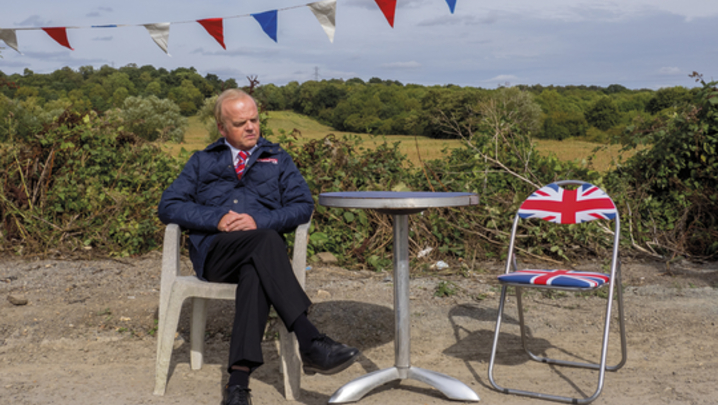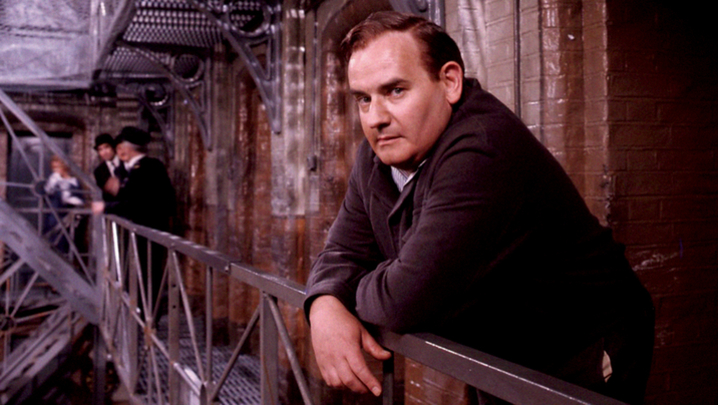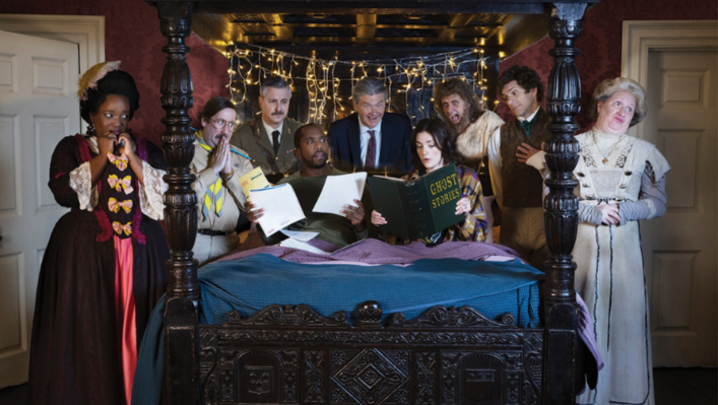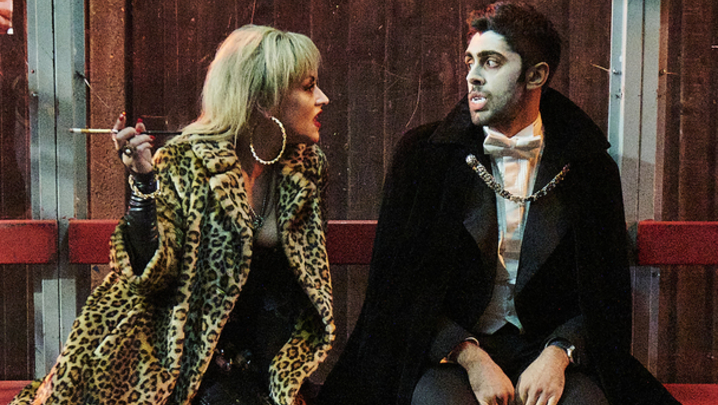Caroline Frost unwraps the female angst that inspires so many funny shows today
"I promised myself that I wasn’t going to say anything rude but I have actually been wet dreaming about getting a Bafta for the whole of my life.” With typically cheeky verve, Phoebe Waller-Bridge accepted her Bafta for her performance in Fleabag back in 2017. Now, with the follow-up series on our screens, fans will be clamouring for more of her stunningly clever tightrope act.
On the one hand, there is the potty-mouthed taboo-busting of family meals laced with inappropriate comments, masturbation to inappropriate icons and anal sex with inappropriate men.
On the other, underneath all that bravado, the social alienation and aching grief and guilt at past wrongs. But if Waller-Bridge, also an RTS award winner, is the British flag-bearer for this kind of witty female angst, she is by no means alone. Since 2012, when Lena Dunham dazzled audiences with Girls, her self-willed conception of what comedy-drama led by women could look like, a whole bunch of young female writers have been inspired to explore their most flawed, Instagram-unworthy selves.
And their efforts are bearing multiple screen fruits. Besides Fleabag, we’ve recently seen Desiree Akhavan star in her self-penned The Bisexual on Channel 4, exploring a young woman’s sexual experimentation. While, on the same channel, Pure follows a young woman living with the chaos of a particular strand of OCD that involves constant intrusive sexual obsessions.
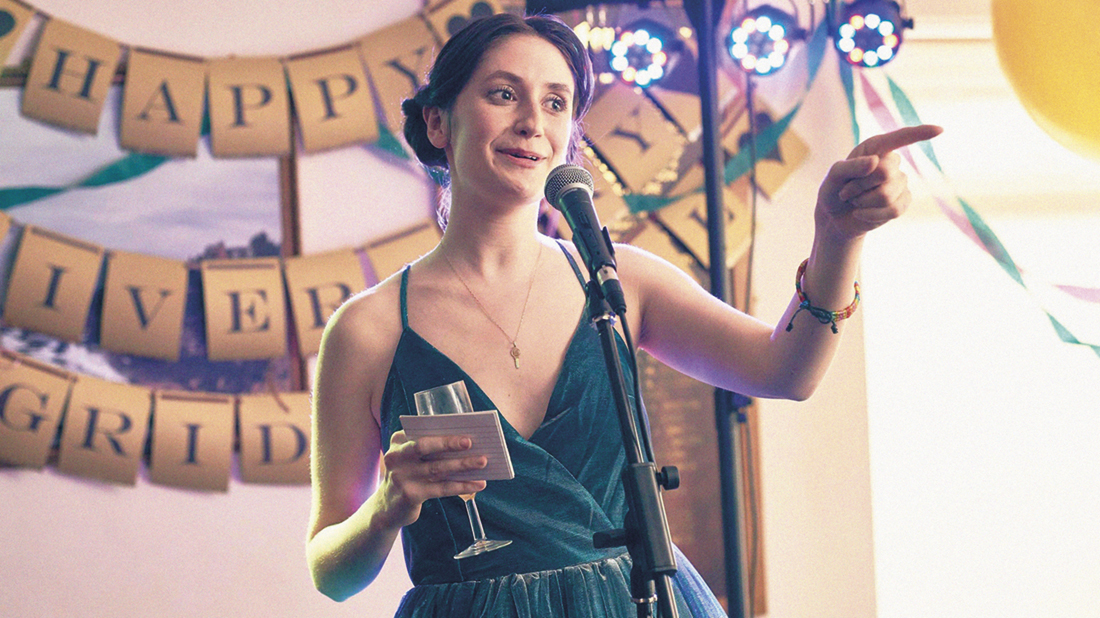
They will soon be joined on screen by Narcissist in the Mirror, which began, like Fleabag, as a one-woman stage play performed by its writer, in this case, Rosie Fleeshman. A stream of consciousness from a competitive, over-thinking, underoccupied young woman that does exactly what it says on the tin, it has been optioned for a TV series by Lime Pictures.
So, if these young women are setting the tone for our era, why has this happened now?
Screenwriter Kirstie Swain, who adapted Pure for Drama Republic from the book by Rose Bretécher, credits those who came before, such as Dunham and Waller-Bridge, but also the solidarity of social media for helping to balance the playing field.
“We now have a platform to ask, ‘Why are there no women in that show?’, and it starts with little things like that,” she reflects. “Small voices can sound louder. Plus, you can connect with like-minded people. You can find your tribe.”
Fleeshman agrees that there is strength in the numbers: “Women are making each other braver to write about this stuff. Other people [are] trying and succeeding, they’re saying it’s totally OK to say who you are and what you want.”
They agree, however, that this can have negative effects when it plays out on social media, especially when it comes to this generation’s frequently self-destructive pursuit of “significance” – and even for the writers themselves.
“We’re all striving for purpose and, the bigger the planet gets, the more contact we make, the more insignificant we feel,” says Fleeshman. “If you grow up as a baker in a small town, you’re the town’s best baker, but move to the city and it all changes. Social media amplifies that to a huge scale. You’re swimming around in it, looking for meaning.
“Nobody ever feels good at anything, because it’s so easy in a minute to find somebody, two years younger, doing something better than you.”
Swain comments on the pressure put on young social-media users to create profiles for themselves online and wonders about the effect this must be having.
“It means we’re always looking at our own identities, asking, ‘Who am I? What groups do I identify with?’ I don’t think my parents ever had to do that. It’s dangerous, really,” she says. “You end up curating your identity, creating the best Instagram version of yourself. And life isn’t like that, it’s messier and dirtier.” Which is where all this great writing comes in.
These shows have clearly hit a spot, but are they purely personal confessionals well told, or the overdue outpouring of a generation’s collective angst?
Clive Crump, a counsellor for a youth charity YCT, attests to the numbers of young women seeking help for anxiety and depression: “Feelings of loneliness [and] disconnection are common. Stress and burn-out are a big problem for young women in hardworking jobs and higher education, all driven by a desire for success and often self-generated pressure.”
"A good consequence is that people feel less alone, they’ll recognise themselves and feel validated in their feelings"
Psychotherapist Karin Peeters goes further and describes a common “existential loneliness”: “They’d never call it that, they say they feel different, not fitting in… anxious, low, down, not good enough, misunderstood, overthinking.”
Some counsellors believe that having more female protagonists on screen is helpful for young women, although they also advise caution. Peeters says, “A good consequence is that people feel less alone, they’ll recognise themselves and feel validated in their feelings. [But] a negative consequence is that young women who are particularly vulnerable might take something so deeply to heart that it might make them feel worse.”
Psychologist Karen Kwong is also positive: “They can teach us some lessons on how we all face challenges on a daily basis. These characters are more real than Daenerys (Game of Thrones) or Serena van der Woodsen (Gossip Girl).”
If that’s the case, bearing in mind the terrible statistics for male mental health in this country, surely we need to hear from young men, too. In words that I never thought I’d use, I ask Swain whether men’s voices are in danger of being drowned out on screen?
Instead of screaming me down, she reflects on decades-old stereotypes: “Traditionally, men’s shows are more action-minded. These shows we’re making are very emotional and introspective.
“Traditionally, men haven’t explored those subjects. But that doesn’t mean they shouldn’t. Interesting stories come from difficult places. Men are just as emotional as women, they just haven’t had the chance to access it. I’d like to hear from them.”
"Young women being outspoken, speaking openly and honestly, still has that shock factor"
For years, male TV comedy has hovered around the Men Behaving Badly model, but we’re seeing an increasing number of interesting evolutions. Aziz Ansari has collected Emmy honours for creating Netflix’s Master of None, centred on his confused but reflective male character, Dev, and Kwong cites Rob Delaney’s character in Catastrophe as “wonderfully portrayed and characterised – dark humour, angst and all”.
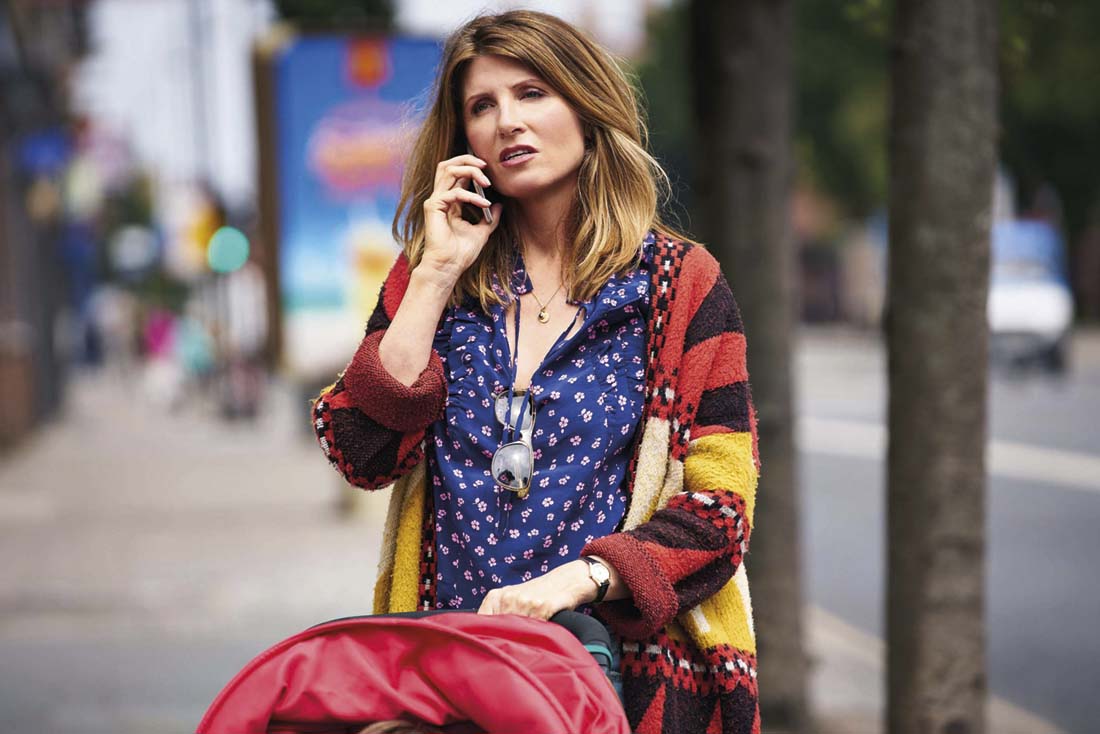
For Fleeshman, the reason that we’re noticing all these funny female voices is that “young women being outspoken, speaking openly and honestly, still has that shock factor”.
It’s true. One of the most distinctive things about this particular wave is the taboo subject matter, the stuff that was off limits until very recently.
For Swain, “It’s not about shocking people. It’s about telling stories that we haven’t been able to tell before. It’s only because we haven’t heard it before that it seems shocking, but it’s always been there.”
Catastrophe, Fleabag and Pure all boast great performances and are strong for a number of reasons: the chemistry between Sharon Horgan and Delaney; Waller-Bridge’s sardonic asides to camera; and Marnie’s priceless throwaway lines. But the real power of these shows lies in the juxtaposition between the gravity of some of the topics and the disarming wit with which they’re handled. And many female writers have embraced this new field, blurring the lines between drama and comedy, to reveal big truths through deceptively light lines.
“There’s nothing funny about trying to be like every other woman is supposed to be,” says Fleeshman. “The fun comes in accepting my flaws, and all those other things I don’t like about myself – my jealousy, my ugliness. When you accept yourself, you can take the piss out of yourself.”
For Swain, comedy was a way into Pure’s dark central concern, a serious and life-inhibiting condition that, she nevertheless realises, lends itself all too readily to humour.
‘If you can laugh at something, it disarms its power’
“Comedy releases a tension. Mental health is a difficult thing to talk about – you pussyfoot around, not wanting to offend anyone,” she says. “But if you can laugh around the subject, without making it the punchline, it’s a way in.
“And if you can laugh at something, it disarms its power. We could have made a bleak or really earnest show, but we wanted to find some joy in the pain, so it’s not all doom and gloom. Laughter is what gives it hope.”
Caroline Frost is a former Chair of the Broadcasting Press Guild.

